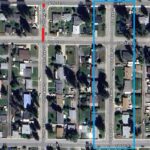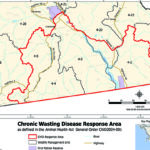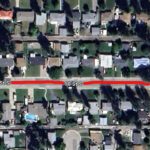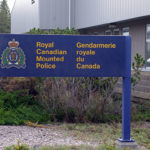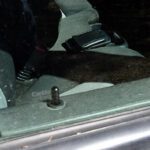Home »

Cranbrook residents facing election day referendum on water metering
City of Cranbrook voters will have one more thing to think about Nov. 19 when they head to voting stations to elect the next mayor and council.
It is an aged question that is coming forward – do you support the city taking on almost $7.8 million in further debt in order to install a water metering system?
Council voted four to one to send the matter to referendum, and it also voted four to one to pass the first three readings of Water Meter Loan Authorization Bylaw No. 3732.
Councilor Angus Davis was the lone vote of dissent and councilors Denise Pallesen and Diana J. Scott were absent.
And supporting councilors noted they expect Cranbrook voters to be cool to the idea of water metering.
Mayor Scott Manjak said he suspects that once voters are faced with approving an almost $8 million debt decision for a control measure such as water meters, the question will be defeated.
However, water metering will become a fact of life down the road, he added.
“We can either deal with the piper now or deal with them later,” he said.
While the price tag is steep, water metering will likely be demanded by senior levels of government moving forward, said Manjak, who previously broached the concept of water metering during brown bag lunch meetings, suggesting it should go to referendum.
“My 12 years in local government tell me” that federal and provincial governments are going to want to see water metering, he told council. “They are heading in that direction,” he continued, noting Cranbrook “may – and the key word is may – be at a disadvantage” if it doesn’t get into the water metering wave.
The city contemplated water metering three years ago, Manjak pointed out, and the price tag then was almost $4 million, meaning the price to install roughly 8,200 properties with water meters has doubled in that time.
Coun. Davis said $7 million plus would be better spent on Cranbrook’s roadways.
“The problem that would be solved by water meters would be a lack of water. We don’t know where the water is going. Lots of it is going into the ditch” from broken lines, he said, adding, “to go to a referendum for up to $7 million (actually $7,778,500) for water meters – we don’t know if they’ll solve anything. Frankly, I don’t think we need it. Besides, I don’t think they’re that popular. I sure as hell wouldn’t go for one.”
Coun. Liz Schatschneider said in her 12 years on council, the issue of water metering comes up every few years, and for good reason.
“There is a 30% drop in water use when you put meters in,” she stated. “It makes sense. People don’t pay attention to how much (water) they use.”
Cranbrook residents are lucky when it comes to relatively cheap vital services, she added.
“We pay a minimal rate in Cranbrook,” she said.
Manjak concurred. Utility costs for a Cranbrook property owner with a $300,000 property are $2.80 a day, he said, and water accounts for 90 cents of that figure.
“We now have no choice but to view water as a scarce and valuable resource,” he said. “The bigger issue – what is the value we as a society place on this commodity?”
Davis argued that more controls aren’t needed.
“Control! Every time you turn around we’re confronted with something the government wants you to do. I don’t think we need more measured control. I don’t think we should take a gamble on $7 million. Why have a referendum if you say it won’t work? It’s not well-timed and not well discussed by council,” he said, concluding, “The world’s not going to end if we don’t have water meters.”
Manjak joked, “Almost sounds like an election campaign!”
Coun. Bob Whetham, noting that fresh water is scarce “globally” and metering tends to make people think about usage more, said holding a referendum during the upcoming municipal elections make sense cost-wise.
Coun. Jim Wavrecan agreed. “It is the most financial viable time to do it,” he said, adding, “We made a commitment to this community that we’d bring this forward.”
The referendum question will be: “Are you in favour of council adopting Water Meter Loan Authorization Bylaw No. 3732, 2011 to borrow upon the credit of the municipality a sum not exceeding $7,778,500 to be repaid over a period not exceeding 15 years for the purpose of funding the acquisition and installation of water meters to properties in the City of Cranbrook?” Yes or no?
According to the city Finance Department’s bylaw report, at an estimated six per cent interest rate, the city will be on the hook for $855,000 a year to service the debt.
“The estimated impact of this borrowing to a taxpayer will be an increase to the water parcel tax of $5 per taxable meter,” the bylaw notes, adding that “the individual taxpayer’s actual experience may be higher or lower depending on their taxable frontage.”
Additionally, annual operating costs are estimated at $210,000, with an estimated increase in the annual utility user fee of $24.
“However, this will depend upon taxpayer use and the user rates established by council. At this time it is impossible to determine the impact to individual taxpayers,” the bylaw report states.
City chief administrative officer Will Pearce said, “The borrowing would likely be through MFA (Municipal Finance Authority) but we do test the market for the least expensive borrowing.”
Ian Cobb/e-KNOW
